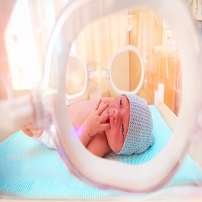Philadelphia Medical Malpractice Lawyers: The Risks to Newborns in Hospitals
August 29, 2016 The Pennsylvania Patient Safety Authority (PPSA) recently conducted a study of newborn safety in a hospital environment. The hospitals that were included in the PPSA’s study were all across the state of Pennsylvania, though specific hospitals were not named. The study spanned two years: 2014 to 2015, and showed that hospital mistakes and accidents, like the ones we are about to detail, occurred at least 2 times per day.
The Pennsylvania Patient Safety Authority (PPSA) recently conducted a study of newborn safety in a hospital environment. The hospitals that were included in the PPSA’s study were all across the state of Pennsylvania, though specific hospitals were not named. The study spanned two years: 2014 to 2015, and showed that hospital mistakes and accidents, like the ones we are about to detail, occurred at least 2 times per day.
The good news is that most newborns in the study were healthy and provided the right care by healthcare professionals and providers. However, the study also revealed numerous areas of concern.
Over 75% of the newborns involved in the study had spent a considerable amount of time in the Intensive Care Unit (ICU). The PPSA appears to link this separation between the infant and their parent(s) to many issues that later arose. Because of the time spent away from their families, the infants were directly under the care of health care professionals, relying solely on them for monitoring, assistance and care-giving.
One child was circumcised against the knowledge of his own parents. Some infants were fed breast milk from other mothers, which brings up a slew of questions in regard to milk screening protocols, as well as viral and bacterial screenings. The PPSA’s study, therefore, opened the doorway to many questions in regard to how newborn patient misidentification can lead to many larger, and potentially quite dangerous, issues for infant/newborn patients and consequently, their parents and families.
For the children who were under direct care from medical professionals while experiencing brief-to-longer term separations from their families, the problems that arose included unlabeled urine samples, mislabeled blood specimens, X-rays ordered for the wrong patients, and more. Some of these mistakes, luckily, were caught in time. But some, sadly, were not.
Perhaps even more shocking is that the author of the PPSA’s study found that in a span of just 2 years, at least 110 infants were given the wrong medications. For those infants, the medications administered were not for them, and even worse, they were already in the Intensive Care Unit for a variety of other severe, health problems.
Now that these problems have been assessed, there are certain ways that the medical system can not only adjust, but also improve. Many medical professionals and researchers striving to improve the system suggest the following tips as the only proposed solutions to these severe problems:
- Give all newborns their own, personal identification codes which then allow for direct access to their personal medical records;
- Because many children are not named immediately at birth, they become referred to in the medical system as “Babygirl” or “Babyboy” followed by their parents’ last name; the PPSA recommends that instead to utilize the parents first name as the initial identifier for the child;
- For newborns who have similar – or even identical last names – it is recommended that they be kept separately from one another, so as to further limit the risk of misidentification. Since many of these children do not yet have first names, they are identified solely under the last names of their parents. Should they have first names that are similar to one another, it is recommended to similarly keep them separately from one another, so as to limit continue limiting the risk of
With this information, changes like the ones outlined and encouraged by the PPSA should alleviate many of the concern highlighted in the study.
Philadelphia Medical Malpractice Lawyers at Galfand Berger, LLP Help Injured Victims of Medical Negligence
Philadelphia medical malpractice lawyers at Galfand Berger can help answer your question. If you or someone you know has been injured by a health care provider’s negligence, our Philadelphia medical malpractice attorneys at Galfand Berger, LLP can help. With offices located in Philadelphia, Reading and Bethlehem, we serve clients throughout Pennsylvania and New Jersey. To schedule a consultation, call us at 800-222-8792 or complete our online contact form.
 Google Screened
Google Screened
